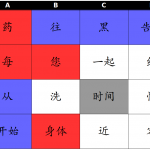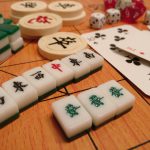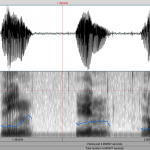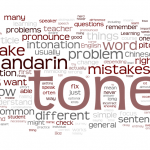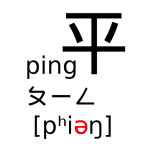Articles in the ‘Speaking’ category Page 8
-
Playing Codenames to learn Chinese and other languages
Codenames is one of my favourite games, and it also happens to be an excellent game for language learning! In this article, I suggest ways of playing it in Chines, along with a tool that generates grids of code words for direct use in the classroom or elsewhere!
Read → -
10 ways of using games to learn and teach Chinese
Games are great for learning languages. Here are ten ways you can use games to learn or teach Chinese as a second language!
Read → -
How to fake sounding like a native Chinese speaker
Have you ever wanted your Mandarin to sound more advanced than it is? In this guest article, David Moser tells us how to fake sounding like a native Chinese speaker. While tongue-in-cheek, some of the advice applies even if you’re after the real thing!
Read → -
Looking up how to use words in Chinese the right way
Looking up how to express something in Chinese is not as easy as it looks. Assuming that a word, especially a verb, can be used the same way in Chinese as in your native language usually results in incorrect or awkward sentences. Stop assuming and look things up properly instead!
Read → -
Obligatory and optional tone change rules in Mandarin
As if learning basic tones wasn’t enough, tones in Mandarin also influence each other and change depending on context. Some of these tone change rules you have to learn, but others are better left alone and will be absorbed automatically over time.
Read → -
7 kinds of tone problems and what to do about them
Tones are tricky to learn and students often encounter many different kinds of problems. Since the solution to them are very different, it’s important to understand what the problem actually is before you try to do something about it!
Read → -
Learning to pronounce Mandarin with Pinyin, Zhuyin and IPA: Part 3
As adults, understanding is important when learning pronunciation. One way to achieve this is through the International Phonetic Alphabet (IPA), which will allow you to see the sounds your ears might fail to hear. Learning IPA also means learning basic phonetics, and that will do you good in the long run!
Read → -
Improving pronunciation beyond the basics
Learning pronunciation beyond the basics is about knowing where you want to be and where you are now. Then you identify which problems keep you from reaching your goal, and solve them one by one in order of importance. This starts with high-quality practice where you learn to pronounce something correctly, then moves to high-quantity practice where you gradually decrease the effort needed to get it right. After a while, no effort will be required and you will have successfully improved your pronunciation!
Read → -
Learning to pronounce Mandarin with Pinyin, Zhuyin and IPA: Part 2
Which transcription system should you use for Mandarin Chinese: Pinyin, Zhuyin or perhaps IPA? Which system you start out with isn’t extremely important, but if you care about pronunciation, it certainly helps to learn more than one system. In this article, I discuss the pros and cons of all three systems and offer some advice about learning pronunciation.
Read → -
Learning to pronounce Mandarin with Pinyin, Zhuyin and IPA: Part 1
Learning to pronounce Mandarin involves several steps. You need to first discriminate between and then identify the sounds, but you also need to be able to write them down and also be able to read how words are pronounced. In this article, I discuss this process and how you should go about it. It also contains advice for what to avoid!
Read →
